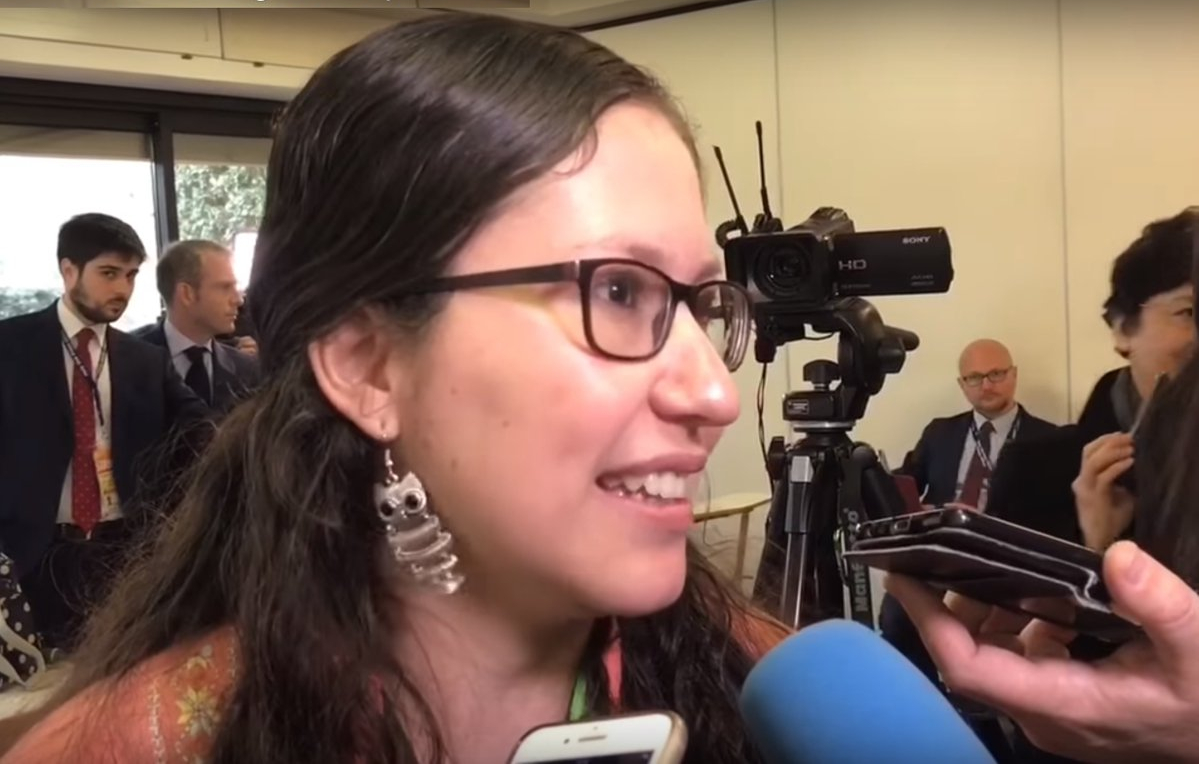 “You will be taken seriously,” the Pope ensured. How many times have the young people in this society felt they are not being considered, heeded, and taken seriously? “They may not take us seriously because they fear that our lack of experience may lead us to make mistakes in all fields. The truth is we may still have a lot to learn, but on the other hand we have something the adults don’t have, and that is our youthfulness here and now, a different experience from what they have lived. We certainly need their experience but we have this plus factor which they don’t have. The young people, however, must not fall into useless criticisms of the adults, trying to destroy the other, but instead, try to cultivate a deep inter-generational dialogue and without judgments. The young people and the adults have specific features that offer the possibility of fruitful and mutual enrichment: the adult person rejuvenates and the young mature.” So, besides the experience of dialogue with the young people of other Churches, faiths and convictions, you have also established a dialogue between generations… “In reality the two dimensions are not separate, and the religious dimension should not be distinct from our humanity and our daily lives; it would be a mistake to distinguish spiritual life from normal life. Instead, transcendence is part of man, and understanding that we are limited and seek the answers by going beyond our own selves is an anthropological issue, typical of our being human. Inter-generational dialogue is a fact because there are people of different ages. Humanity renews itself and within this fact there is also a spiritual aspect which is typical of all ages, in adults as in children.
“You will be taken seriously,” the Pope ensured. How many times have the young people in this society felt they are not being considered, heeded, and taken seriously? “They may not take us seriously because they fear that our lack of experience may lead us to make mistakes in all fields. The truth is we may still have a lot to learn, but on the other hand we have something the adults don’t have, and that is our youthfulness here and now, a different experience from what they have lived. We certainly need their experience but we have this plus factor which they don’t have. The young people, however, must not fall into useless criticisms of the adults, trying to destroy the other, but instead, try to cultivate a deep inter-generational dialogue and without judgments. The young people and the adults have specific features that offer the possibility of fruitful and mutual enrichment: the adult person rejuvenates and the young mature.” So, besides the experience of dialogue with the young people of other Churches, faiths and convictions, you have also established a dialogue between generations… “In reality the two dimensions are not separate, and the religious dimension should not be distinct from our humanity and our daily lives; it would be a mistake to distinguish spiritual life from normal life. Instead, transcendence is part of man, and understanding that we are limited and seek the answers by going beyond our own selves is an anthropological issue, typical of our being human. Inter-generational dialogue is a fact because there are people of different ages. Humanity renews itself and within this fact there is also a spiritual aspect which is typical of all ages, in adults as in children. 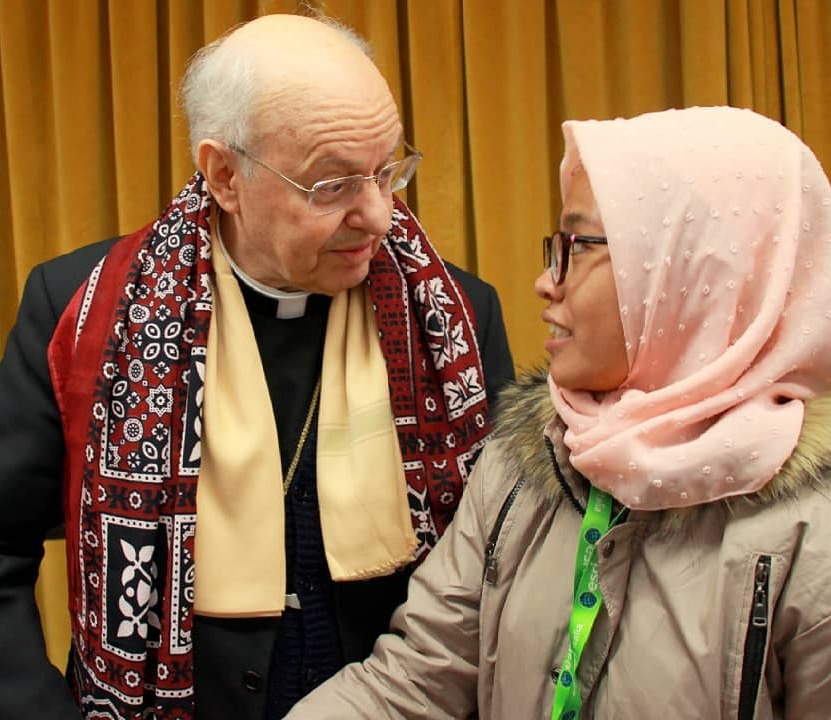 The Pope wanted this Synod on the young people to also be a synod for the young people, with and of the youth. Did you really feel like protagonists? “Very much so, and we were moved by this total openness, firstly of the Pope, and of the Church. His representatives who were there to keep up with us did not interfere: Cardinal Lorenzo Baldisseri and Bishop Fabio Fabene were there to listen to us. In them I saw the figure of Mary who creates total silence and makes room so that the Word could be born, a painting in the background, a precious silence that makes the Word emerge. They were there to listen both during the work session as in recreational moments and when we asked them questions they answered, otherwise they remained silent. In their faces we saw the reflection of the things on which they agreed and those which hurt them and this helped us to find that balance the Pope spoke about on the first day: speak up with daring but be humble if you make mistakes and ask for forgiveness. This happened when we were drawing up the final document, when some may have used overly critical language, but slowly we found this balance, also because their presence helped us. So, certainly we also felt the support of the adults of the hierarchical Church. Not everything was perfect but that’s life.” What impressed you upon completion of the works? “Once the final document was approved I heard the young people of various countries – one from the Samoan isles, an Asian, an African, a European and a Latin American – say that this document reflects what the young people are today. These are the same things my friends think, and the same questions we ask ourselves, and I was really glad because this was the reason for our meeting: to be able to talk of themes that otherwise would not have been faced. It’s true that not everyone agreed with everything, since there are different nuances in every region, however, the main problems and questions, and the experience in pursuing in-depth meaning is reflected in the document with all the contradictions that arose; even if some think in one way, others in a completely opposite way, the quest and aspirations were the same. So I was pleased to see that this 5-day working session, the 300 young people from all over the world and their situations essentially reflect what the young people are today, whether in the Middle East, Asia and in Africa. We are aware that this is a historical moment for the Church, not only because it is the first time it has opened out to listen to the young people in this manner, but also because from now on we will not be able to proceed without taking this meeting and all that has emerged into consideration. It is a start and we are happy to have been part of it.” Read the entire document
The Pope wanted this Synod on the young people to also be a synod for the young people, with and of the youth. Did you really feel like protagonists? “Very much so, and we were moved by this total openness, firstly of the Pope, and of the Church. His representatives who were there to keep up with us did not interfere: Cardinal Lorenzo Baldisseri and Bishop Fabio Fabene were there to listen to us. In them I saw the figure of Mary who creates total silence and makes room so that the Word could be born, a painting in the background, a precious silence that makes the Word emerge. They were there to listen both during the work session as in recreational moments and when we asked them questions they answered, otherwise they remained silent. In their faces we saw the reflection of the things on which they agreed and those which hurt them and this helped us to find that balance the Pope spoke about on the first day: speak up with daring but be humble if you make mistakes and ask for forgiveness. This happened when we were drawing up the final document, when some may have used overly critical language, but slowly we found this balance, also because their presence helped us. So, certainly we also felt the support of the adults of the hierarchical Church. Not everything was perfect but that’s life.” What impressed you upon completion of the works? “Once the final document was approved I heard the young people of various countries – one from the Samoan isles, an Asian, an African, a European and a Latin American – say that this document reflects what the young people are today. These are the same things my friends think, and the same questions we ask ourselves, and I was really glad because this was the reason for our meeting: to be able to talk of themes that otherwise would not have been faced. It’s true that not everyone agreed with everything, since there are different nuances in every region, however, the main problems and questions, and the experience in pursuing in-depth meaning is reflected in the document with all the contradictions that arose; even if some think in one way, others in a completely opposite way, the quest and aspirations were the same. So I was pleased to see that this 5-day working session, the 300 young people from all over the world and their situations essentially reflect what the young people are today, whether in the Middle East, Asia and in Africa. We are aware that this is a historical moment for the Church, not only because it is the first time it has opened out to listen to the young people in this manner, but also because from now on we will not be able to proceed without taking this meeting and all that has emerged into consideration. It is a start and we are happy to have been part of it.” Read the entire document
Make available whatever you have over
Make available whatever you have over

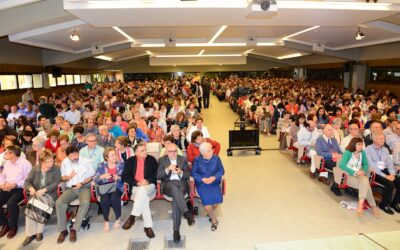
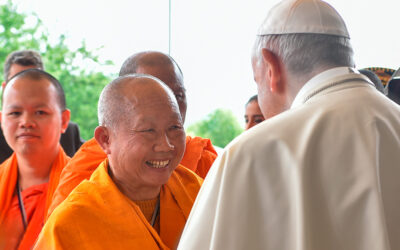
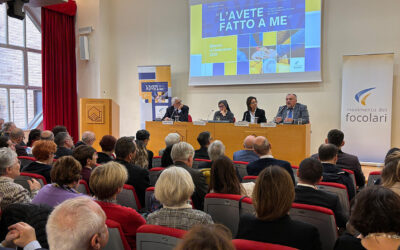
0 Comments